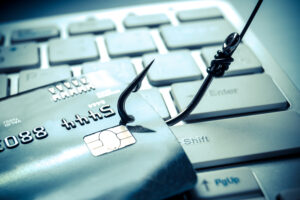In the world of finance, where fortunes are made and managed, the value of information is immeasurable. Unfortunately, cybercriminals are aware of this and are constantly devising new ways to exploit it. Phishing and social engineering attacks have become the go-to methods for cybercriminals seeking to compromise financial institutions and individuals. In this blog post, we will delve into the dangers of phishing attacks in the financial industry and provide essential tips for recognizing and avoiding them.

The Art of Phishing and Social Engineering
Phishing and social engineering attacks are tactics employed by cybercriminals to manipulate individuals into divulging sensitive information, such as passwords, credit card numbers, or financial data. These attacks often involve the impersonation of trusted entities or the exploitation of human psychology.
Common Examples of Phishing and Social Engineering in Finance:
- Email Scams: Fraudulent emails masquerading as legitimate financial institutions or government agencies, urging recipients to click on malicious links or provide personal information.
- Spear Phishing: Targeted phishing attacks, often directed at specific individuals within an organization, using personalized information to increase credibility.
- Vishing (Voice Phishing): Cybercriminals pose as legitimate entities over the phone, attempting to extract sensitive information or funds from unsuspecting victims.
- Baiting: Offering enticing incentives, such as free software downloads or financial advice, that deliver malicious payloads when accessed.
- Pretexting: Creating a fabricated scenario or pretext to gain access to confidential information.

The Dangers of Phishing in Finance
For financial professionals and individuals alike, falling victim to phishing attacks can have dire consequences:
- Financial Loss: Phishing attacks can result in unauthorized access to bank accounts, credit cards, or investment portfolios, leading to significant financial loss.
- Identity Theft: Stolen personal information can be used for identity theft, leading to further financial and personal security issues.
- Reputation Damage: Financial institutions can suffer reputational damage if customers’ trust is compromised due to a phishing incident.
- Regulatory Consequences: Financial organizations may face regulatory fines and penalties for failing to protect customer data adequately.

Recognizing and Avoiding Phishing Attacks
Now, let’s explore some essential tips for identifying and avoiding phishing attacks in the financial sector:
- Verify the Sender: Always verify the authenticity of the sender before clicking on any links or providing information. Be wary of generic or suspicious email addresses.
- Check for Urgency: Phishing emails often create a sense of urgency, urging immediate action. Take your time to evaluate the request.
- Hover, Don’t Click: Hover your mouse over hyperlinks to preview the URL before clicking. Ensure it matches the legitimate domain.
- Avoid Pop-Ups: Avoid clicking on pop-up ads or offers that seem too good to be true.
- Use Multi-Factor Authentication (MFA): Enable MFA for your financial accounts to add an extra layer of security.
- Keep Software Updated: Ensure your operating system, antivirus, and anti-malware software are up to date to protect against known vulnerabilities.
- Educate Yourself: Stay informed about the latest phishing tactics and educate yourself and your colleagues on recognizing phishing attempts.
- Report Suspected Phishing: If you receive a phishing attempt, report it to your IT department or the legitimate organization being impersonated.
- Be Skeptical: Be cautious when asked to provide personal or financial information, even if it appears to be from a trusted source.
- Verify Requests: If someone contacts you requesting sensitive information, verify their identity independently before responding.
In the fast-paced world of finance, vigilance is your best defense against phishing and social engineering attacks. By staying informed, skeptical, and cautious, you can protect your financial assets and personal information from falling into the wrong hands. Remember that the best way to thwart phishing attempts is through knowledge and awareness. Stay safe, stay secure, and protect your financial future.

